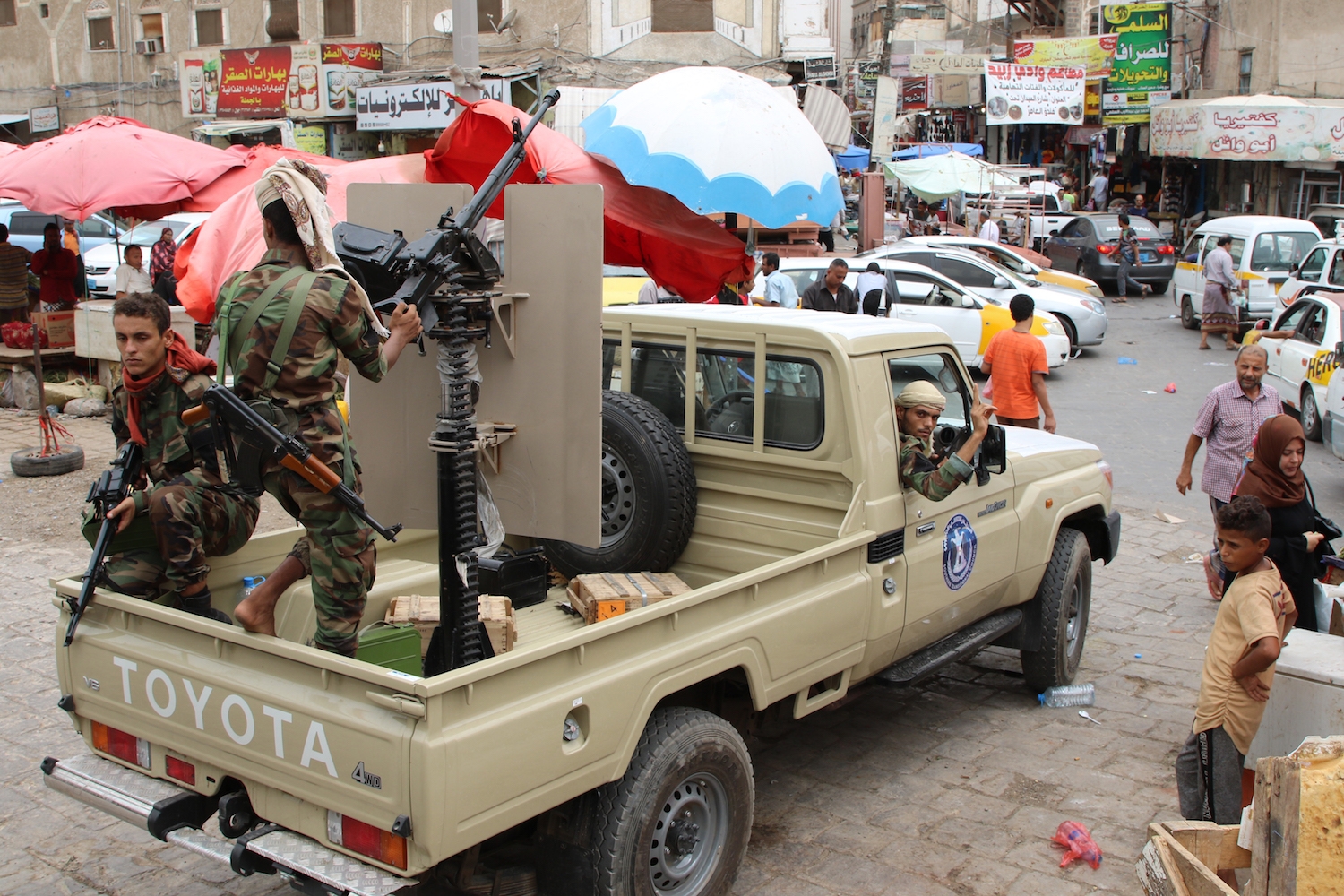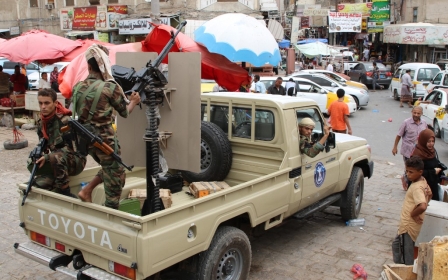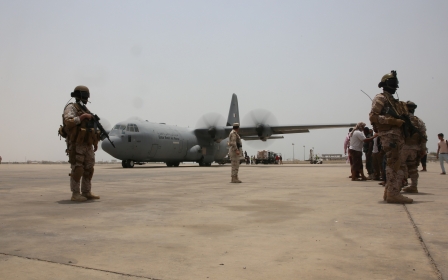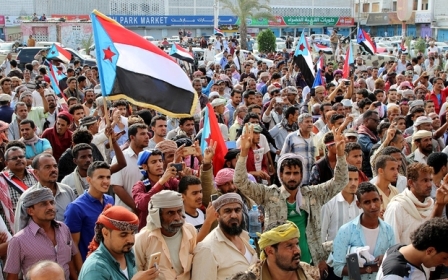Yemen: Deadly clashes break out between pro-government forces and separatists

Renewed clashes in Aden killed at least six civilians as a violent flare-up between pro-government fighters and southern separatist forces rocked the Yemeni port city.
At least six civilians were killed and a dozen others hurt in the fighting on Friday, AFP reported, citing a security source. A mortar round crashed into a house, killing six people, four from the same family, a security source told the news agency.
Reuters, which cited medical sources in the city, said at least eight civilians were killed. MEE could not independently verify the death toll.
The fighting highlights divisions between two camps that are each opposed to the country's Houthi rebels. It began earlier this week after separatists accused an Islamist party allied to Yemen's internationally recognised President Abd Rabbuh Mansour Hadi of being complicit in a missile attack on a military parade.
While both sides have fought the Houthis as part of a coalition led by Saudi Arabia and the United Arab Emirates, the separatists are aiming for independence in the south, while pro-government forces are calling for a unified Yemen under Hadi's leadership.
New MEE newsletter: Jerusalem Dispatch
Sign up to get the latest insights and analysis on Israel-Palestine, alongside Turkey Unpacked and other MEE newsletters
South Yemen was formerly an independent socialist republic, which dissolved and joined the north in 1990 after the fall of the Soviet Union.
While the separatists and pro-government forces fighting the Houthis have clashed in the past, tensions between them have intensified since UAE troops, which had supported the secessionists, began withdrawing from Yemen last month.
The fighting is complicating efforts by the United Nations to reach a ceasefire agreement in Yemen, which faces a dire humanitarian crisis as a result of the ongoing war.
Doctors Without Borders said on Friday that it had treated 75 people in a surgical hospital since Thursday evening, seven of whom were in "critical condition".
"Most of the patients we admitted are civilians and were injured by shrapnel during shelling on their houses or stray bullets," the group said on Twitter.
It added that an MSF-run hospital in Aden remains open despite the fighting.
The Saudi-led coalition had been widely backing anti-Houthi forces, including southern secessionist troops, but cracks within the alliance have became more apparent in recent weeks since the UAE announced plans to draw down its presence.
Anwar Gargash, the UAE's minister of state for foreign affairs, sought to dispel fears in late July that the drawdown might lead to new fault lines in the fighting.
"Just to be clear, the UAE and the rest of the coalition are not leaving Yemen," Gargash said in an opinion piece in the Washington Post.
"While we will operate differently, our military presence will remain. In accordance with international law, we will continue to advise and assist local Yemen forces," he said.
Still, MEE reported a few weeks before Gargash's comments that tensions were rising between southern separatist forces and fighters loyal to Hadi as a result of the Emirati announcement.
Local activists and security officials said earlier that the separatist Southern Transitional Council (STC), a group challenging Hadi's government throughout the southern provinces, was training a new group of fighters.
Dubbing itself "the southern resistance," the group has recruited thousands of fighters over the past few months, the activists and security sources said.
Middle East Eye delivers independent and unrivalled coverage and analysis of the Middle East, North Africa and beyond. To learn more about republishing this content and the associated fees, please fill out this form. More about MEE can be found here.




